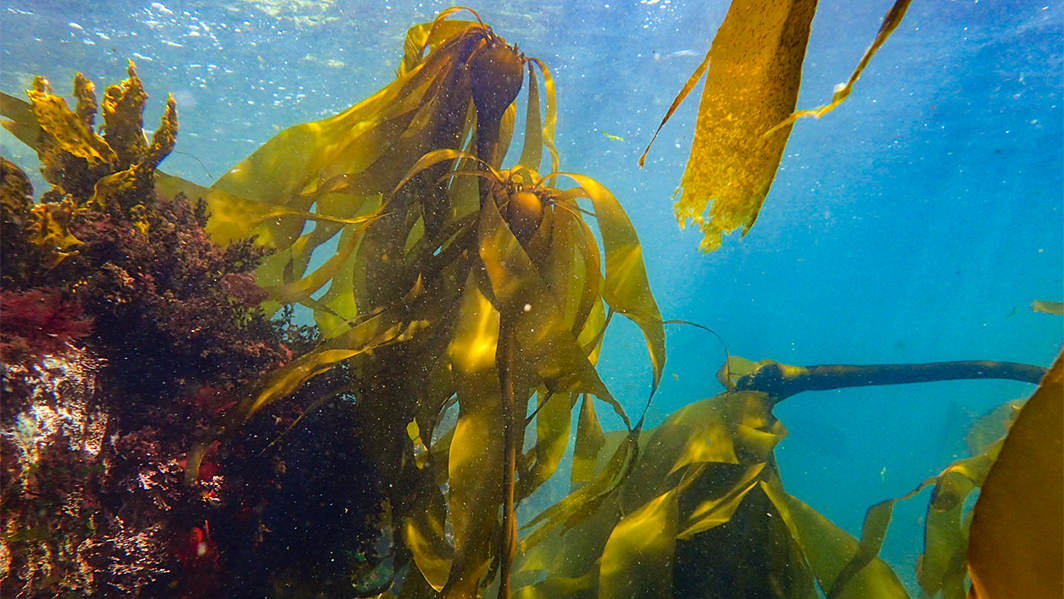BC kelp forest health at risk
February 01, 2024

(Bull kelp, southern Vancouver Island. Credit: Lauren Man)
By Anne MacLaurin
Floating and curving along the coastline, the kelp forests around the Greater Victoria area and the southern Gulf Islands are home to seals and orcas, rockfish and sea stars. The bull kelp (Nereocystis luetkeana) grows on rocky substrates and forms visible canopies on the surface during the summer peak.
Marine heatwaves and environmental stressors, such as the ‘Blob’ (2014–2019), increase ocean temperatures and researchers know that warmer oceans impact the health of kelp forests. In a recently published paper, postdoctoral researcher Alejandra Mora-Soto dug deeper into the impact of heat and wind on kelp resilience looking at satellite data over the last two decades (2005–2022) from southern Vancouver Island, and a site observed in Ella Beach since 1972.
“Our work is led by UVic geographer Maycira Costa, and her Spectral and Remote Sensing Lab is addressing kelp change for the entire coast of B.C.,” says Mora-Soto.
“In our research, the Spectral Lab team and collaborators--Pacific Salmon Foundation, Fisheries and Oceans Canada, Canadian Hydrographic Service, Capital Regional District of Victoria, and Island Trust Conservancy--discovered that sea surface temperatures and marine heatwaves have increased over the last decades; whereas, the coasts in the Strait of Juan de Fuca are still within the optimal temperature range for kelp growth,” explains Mora-Soto. “We hypothesise that the summer winds in the strait of Juan de Fuca increase water motion, an effect that favours canopy growth and the health of the kelp in general.”
Whereas around the east coast of Mayne, Saturna, and Galiano islands in the Strait of Georgia, an area more sensitive to warming temperatures, research has shown a decline in kelp presence. As spring and summer sea temperatures may continue to increase, there is a higher chance of a negative impact on these forests, therefore creating a damaging cascading effect on the marine biodiversity that lives in them.
Warming temperatures and extreme wind events will continue to challenge the health and resilience of kelp along the BC coast, but there is a new concern arising and that is the increased presence of encrusting bryozoans on the kelp. For that reason, the Spectral Lab is developing new tools to detect bryozoans with remote sensing, to inform and help future restoration and management efforts of this important nearshore ecosystem in the Salish Sea.
Read more about this in the paper published by the journal Frontiers in Marine Science.
-end-
